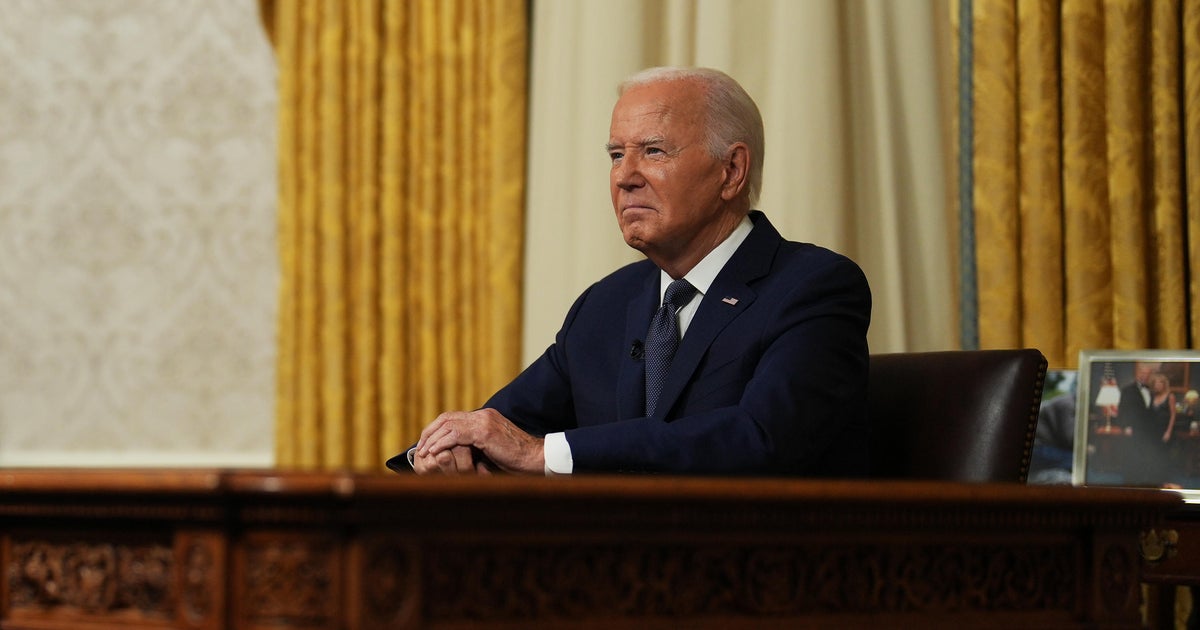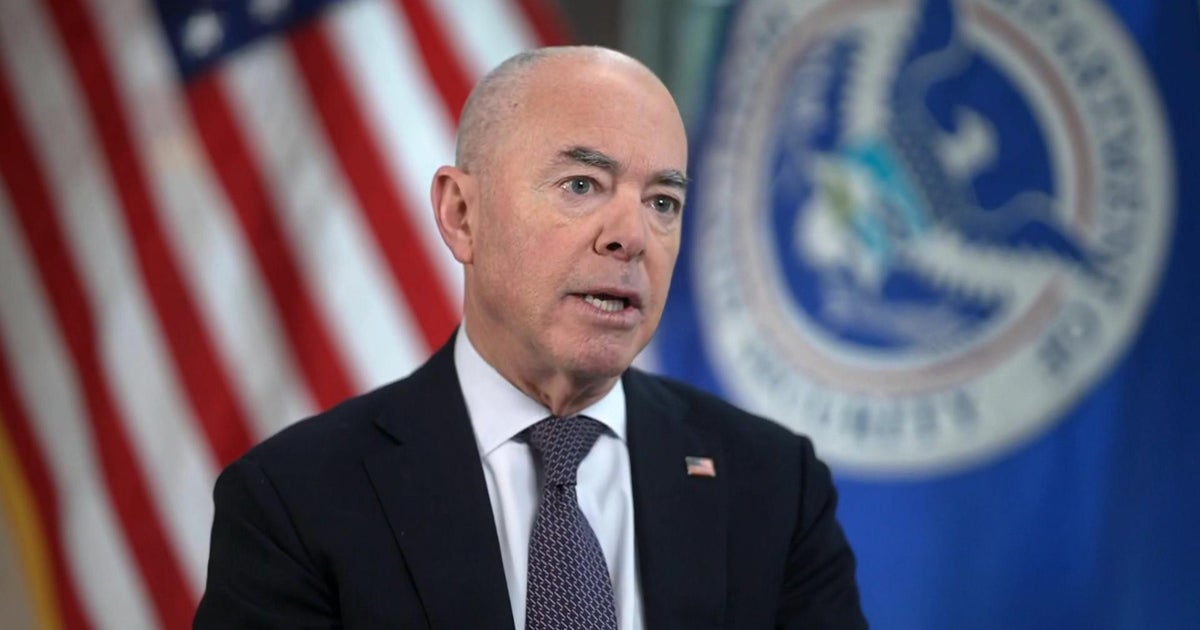Lawmakers condemn "horrific" conditions faced by asylum-seekers returned to Mexico
One-by-one, members of a congressional delegation described the squalid conditions faced by the asylum-seeking families and children they met in Matamoros, Mexico, where the U.S. has returned thousands of migrants, requiring them to wait for their U.S. immigration court hearings on the Mexican side of the border.
Through impassioned remarks in English and Spanish, the Democratic lawmakers crafted a scathing rebuke of the Trump administration's so-called "Remain in Mexico" program, questioning its legality and denouncing the precarious situation the policy has created for tens of thousands of Latin American asylum-seekers in northern Mexico.
"These are conditions that people seeking asylum and refuge in the United States should not have to endure," Texas Democratic Congressman Joaquin Castro said during a press conference on Friday in Brownsville, Texas, Matamoros' neighboring city.
Under the Migrant Protection Protocols (MPP), as the policy is officially called, the U.S. has required more than 57,000 migrants to wait in northern Mexico for the duration of their U.S. immigration court proceedings. The program, which is being challenged in court, has led to the creation of overcrowded shelters and makeshift encampments in dangerous Mexican cities like Matamoros, located in a region the State Department warns Americans not to visit because of rampant violence and crime.
The congressional delegation, made up of more than a dozen lawmakers, expressed concerns about lack of medical care, drinkable water and overall security that the asylum-seekers returned to Mexico by the U.S. face in tent camps along the banks of the Rio Grande. They called for the end of the program, saying those seeking refuge at the southern border should generally be allowed to fight their deportations and argue their asylum cases inside the U.S.
During their visit, some members of the delegation pressured U.S. border officials to allow a young migrant girl with down syndrome and a heart defect to enter the U.S. to receive medical treatment, according to California Congresswoman Nanette Barragán. The girl, the congresswoman said, had been denied entry the day before.
For Castro, the policy represents a moral stain on the nation's reputation.
"For generations, the United States has been a country that has been respected around the world as a beacon of moral clarity and moral rectitude — as a place that takes in those seeking asylum. Or at least gives them a fair chance to make their case," he said. "Unfortunately, President Trump has fundamentally changed that."
Other members of the delegation echoed Castro's remarks. Recalling an encounter with a mother from El Salvador with a sick child, Oregon Congresswoman Suzanne Bonamici called what she saw in Mexico "heart-breaking."
Chicago Congressman Chuy Garcia said he and his colleagues witnessed the "horrific" consequences of the MPP program. "We see its inhumanity and vow to redouble every effort we can to end the policy and restore decency to our asylum system," he added, saying he hopes the courts block the policy.
For months, the Trump administration has cast aside strong criticism from Democrats, advocates and even some of the very same asylum officers overseeing the Remain in Mexico program, calling it an "effective tool" in reducing apprehensions along the southern border. After a 13-year monthly high of about 133,000 apprehensions in May, arrests of migrants along the southern border have dropped for seven consecutive months, reaching 33,000 last month.
The Remain in Mexico policy is one of several policies the administration rolled out over the past year to restrict asylum at the U.S.-Mexico border. These also include a sweeping rule that renders most non-Mexican migrants ineligible for asylum and controversial agreements with Guatemala, Honduras and El Salvador that allow the U.S. to reroute certain asylum-seekers to those countries.
Philadelphia Congressman Brendan Boyle suggested that the squalid conditions faced by the asylum-seekers in the program, as well as their prolonged time in Mexican border cities, are intended to deter those seeking to journey to the U.S.-Mexico border. "Let's not be naïve — that's the point. With the Trump administration, the cruelty is the point," he said.





